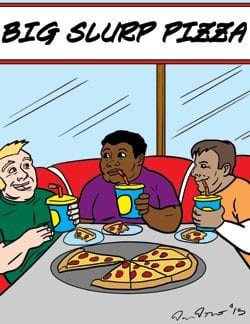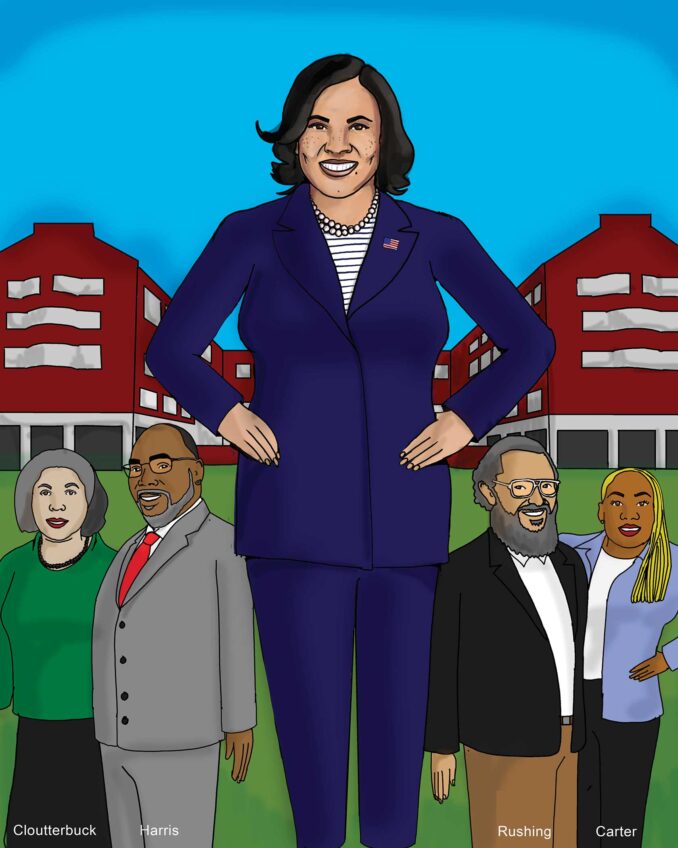
NAACP’s super-sized mistake
The National Association for the Advancement of Colored People — the NAACP — has a glorious history of efforts to eliminate racial prejudice in the United States. As its name implies, the organization was also committed from its inception to ensure advancement for minorities in other areas such as political, educational, social and economic equality.
Unfortunately, the NAACP’s storied reputation was sullied recently by the decision of its New York state chapter to oppose Mayor Michael Bloomberg’s ban on the sale of sugary soda drinks in some stores and retail establishments.
In an effort to curb the obesity epidemic, the mayor authorized the New York City Board of Health to ban the sale of soda drinks larger than 16 ounces. This restriction applied only to stores and restaurants licensed by the city. Numerous research studies have established a connection between the excessive consumption of such drinks and the growth of obesity as a major health problem.
The greatest problems confronting African Americans in the early years of the twentieth century resulted not from obesity but from the violation of their civil rights. The U.S. Supreme Court had decreed that racial discrimination and segregation were permissible. The states of the old Confederacy had established social systems designed to facilitate racial oppression. Blacks with the temerity to oppose the system assumed the risk of being lynched. According to research by the Tuskegee Institute, 3,446 blacks were lynched between 1882 and 1968, with the peak period being from 1890 to 1920.
The NAACP was founded in 1909 to advance the status of African Americans. An early agenda of the new organization was to restrict lynching by making it a federal crime. While multiple efforts to end lynching failed, the NAACP Legal Defense and Education Fund, under the leadership of Thurgood Marshall, was able to secure victories in pivotal court cases. The NAACP was also an important member of the coalition involved in the Civil Rights Movement.
With the enactment of federal laws in the mid- 1950s and ‘60s to outlaw racial discrimination and to secure voting rights, the NAACP had to expand its focus. One of its major concerns, among other issues, became disparities in health care. The NAACP website states, “The NAACP is committed to eliminating the racial and ethnic disparities in our health care system that plague people of color in the United States. African Americans continue to have the highest incidence, prevalence and mortality rates from chronic diseases like cardiovascular disease, diabetes and obesity.”
The medical evidence is indisputable. Obesity is now a major cause of diabetes and other cardiovascular diseases. Blacks suffer from obesity more than other groups. Blacks are 1.4 times more likely to be obese than non-Hispanic whites. Four out of five African American women are overweight or obese.
One of the consequences of obesity is that blacks are twice as likely as whites to be diagnosed with diabetes and they are 2.2 times as likely as whites to die from diabetes. With such a high mortality rate for blacks, it would seem that the organization that fought so hard against death from lynching would also oppose, by any means necessary, those practices that could lead to death from obesity.
The case against Mayor Bloomberg was essentially filed by the American Beverage Association and joined by others with a financial interest in the outcome. The New York State Conference of the NAACP and the Hispanic Federation joined the opposition allegedly for the specious reason that the “soda ban” discriminated against the practices of small black and Latino businesses. That reasoning is as foolish as support for an effort to keep the marketing channels for minority dealers of illicit drugs open and unimpeded.
The beverage companies have been generous financial contributors to minority causes. NAACP support for gargantuan-size soft drinks appears to be payback for those contributions and is damaging to the reputable image of the NAACP brand. The national NAACP office should not support local branches when they engage in conduct in conflict with national policies.






